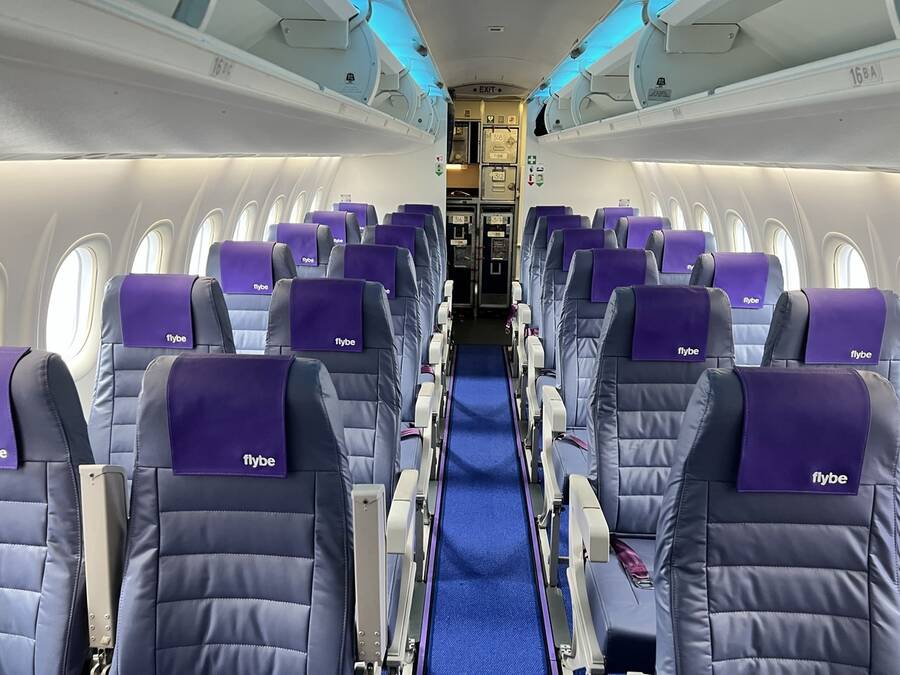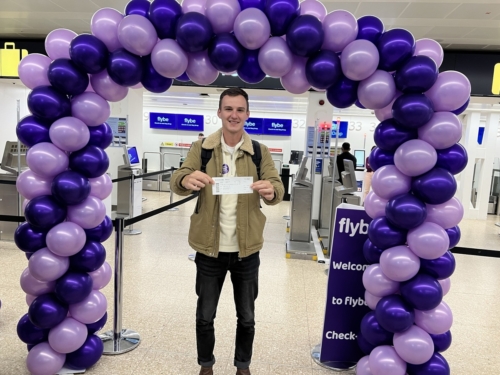What can we learn from the Flybe administration report?
Links on Head for Points may support the site by paying a commission. See here for all partner links.
Flybe went into administration on 28th January – here is our article from that day. Whilst no-one doubted that the company would be struggling, given the lower yielding Winter season and the fact that domestic Air Passenger Duty wouldn’t be cut until 6th April 2023, the speed of the demise came as a shock.
Interpath, which is acting as administrator to recover what value it can for creditors, published its initial findings last week.
There are some interesting titbits in there about the condition of the airline.

Flybe was operating to 17 cities at the time of its demise, using a fleet of nine aircraft. The company employed 279 people when it closed. As of last week, this had dropped to 10 people.
The shareholders, a company led by private equity group Cyrus Capital (which had also invested in the original Flybe), initially invested £45 million in the company as a mixture of equity and loans. This was expected to see the business through to breakeven.
The airline originally planned to have 17 aircraft, but suffered from delivery delays and had only two available aircraft on the day it launched. Ongoing delays led, as we reported at the time, to multiple route cancellations, sometimes just days before new routes were due to launch. The ramp up in services was also hindered by covid restrictions in early 2022.
A further £24 million was injected by the shareholders in August 2022, but by this time the business was losing between £4 million and £5 million per month.
The shareholders tried to find a new partner or sell the company. When these plans fell through there was no choice but to place the airline into administration at 3am on 28th January, a time when all aircraft were on the ground.
Post-administration, attempts were made to sell the company to the only interested buyer (not named, but believed to be Air France KLM) but terms could not be agreed.

The airline had to be sold via a share sale in order to retain the landing slots at Heathrow and Amsterdam. When the decision was taken to wind down the business, the Heathrow slots reverted to British Airways and the Amsterdam slots reverted to the Dutch slot allocation authority, which has given them to US carrier JetBlue.
Here is exact wording on the slots:
As noted above, there were a number of challenges for Flybe to retain its rights to its slots and to ultimately realise value for them. Unfortunately, the slots at Heathrow which were highly prized in the industry were not Flybe’s to sell or transfer – they were held under an agreement with BA through a European Commission-decreed arrangement. Those slots reverted to BA once they were in jeopardy of the use-it-or-lose-it rule in the absence of a buyer for the Company emerging. Similarly, Amsterdam slots are subject to the rules of Airport Coordination Netherlands, who were unwilling to agree a transfer absent the sale of the Company and its Operating Licence, or a similar substantial transfer of the Flybe business. No offers were received for the airline’s slots, and they were returned to the pool by the relevant slot coordinators.
As happened with the liquidation of the original Flybe, creditors are losing out to shareholders. That said, the report makes clear that many suppliers did not have confidence in the business and had been insisting on advance payments or deposits.
Because Cyrus Capital invested much of its money in the form of a secured loan, it has higher priority than unsecured creditors. The estimated £8 million remaining when the administration is complete will go to the shareholders, with unsecured creditors to be wiped out apart from a ring-fenced £800,000.
The total net deficiency (ie the amount of money that would be required to repay all external creditors plus fully repay the debt and equity injected by the shareholders) is £82 million.
PS. Interpath, as administrators to Flybe, have charged an average of £689 per staff member per hour for their time to date, with the most senior staff charging over £1,000 per hour.









Comments (31)